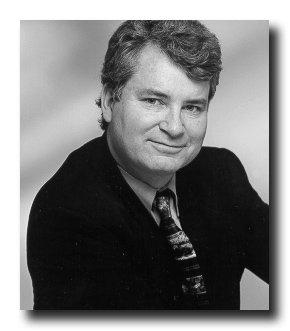Guest Post – A Virtuous Cycle
To paraphrase St. Paul, Minnesota native F. Scott Fitzgerald, “Let me tell you about rich nonprofits. They are different from you and me.”
Underdeveloped — A National Study of Challenges Facing Nonprofit Fundraising identifies several ongoing, and challenging facts of life for the development staffing of the nonprofit sector, particularly for small organizations. Clearly these factors makes it more difficult for organizations to gather consistent or adequate resources – what we don’t know is what improvements or declines have occurred over the last 15 years, but I suspect that little is different.
One key variable in fundraising is transaction costs –there is so much variation in the ease and access for organizations obtaining their support, the task has huge variation from organization to organization, based on size, subject matter, geography and constituency.
Resource development is inherently more difficult for small organizations (even those that are not in a vicious cycle). Organizations with high net worth constituencies have advantages most organizations do not, for an obvious example, or organizations with an anchor funder, regular government contract or substantial endowment giving them a stability that makes fundraising success (and regular employment for the staff that do this work) more likely.
If there is a virtuous circle contrasting with the vicious cycle in the Underdeveloped report it might be:
1. Popular organizations with plentiful access, relationships and history of resources are
2. Reliable employers of well-supported and well compensated development directors that
3. Succeed at their realistic goals essential to the organization’s success, which allows for
4. Longevity and further skill and relationship development that
5. Reinforces popular organizations with continued access, relationships and history of resources.
In this case “virtuous” is a good contrasting word to vicious, describing a desirable quality, though there is significant overlap in this context with “fortunate” (root word fortune) and affluent constituency. The vicious cycle organizations that serve low-income communities seek to counteract the larger market failures of society, but often are forced to fight poverty with poverty.
Lastly, regarding whether the evidence of people reporting that development directors leaving their position or leaving their job category is in crisis, from what I’ve seen this turnover has been consistent over the last 15 years. Self reporting by people contemplating a future action needs to be weighed lightly to avoid raising false alarms. Through no fault of their own, humans over-predict how quickly they will make changes in their lives, so best not to conclude too much from those responses.
Comments to Jon, please write jpratt(@)minnesotanonprofits.org
Jon Pratt is the executive director of the Minnesota Council of Nonprofits. He has worked at Minnesota Public Interest Research Group as an attorney and lobbyist, as regional director at the Youth Project, and as director for the Philanthropy Project. In 1982 he was campaign manager for Paul Wellstone candidacy for Minnesota State Auditor.
In 1987 he became director of MCN, an association of 2,000 organizations that sponsors research, training, lobbying and negotiated discounts to strengthen Minnesota’s nonprofit sector.
Jon has consulted with nongovernmental organizations on the development of NGO associations and services in Canada, Costa Rica, Czech Republic, Hungary, Poland, Serbia and Turkey. Pratt has a law degree from Antioch School of Law, and a M.P.A. from Harvard University.


[…] his post, Minnesota Council of Nonprofits’ Jon Pratt discussed “A Virtuous Cycle” referring to the recent UnderDeveloped study. He reported difficulties of smaller nonprofits in […]